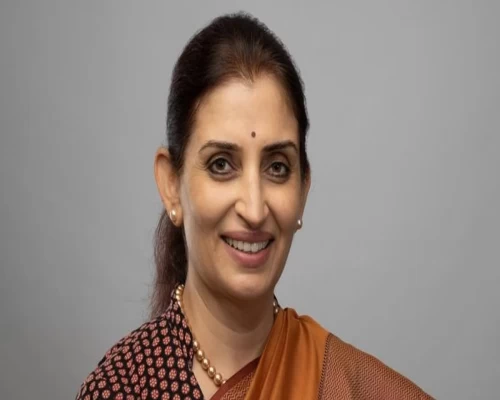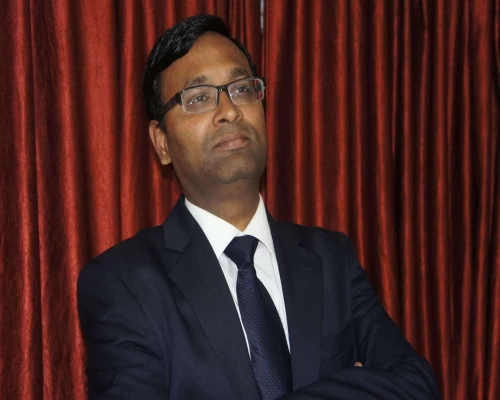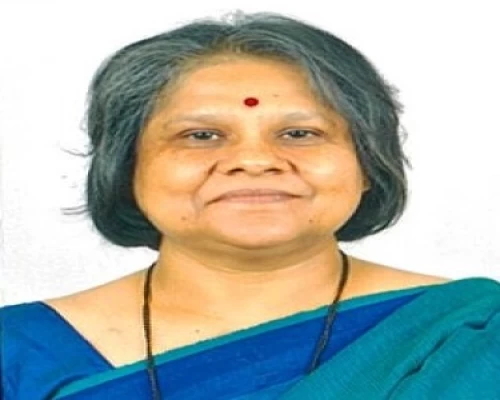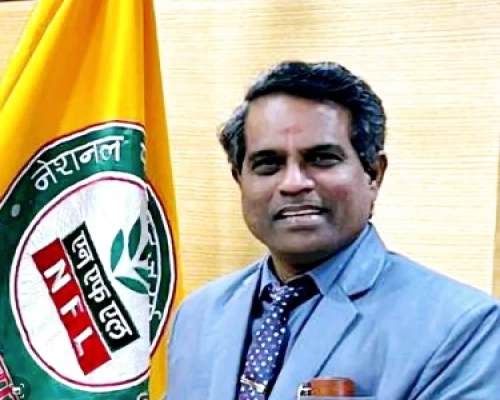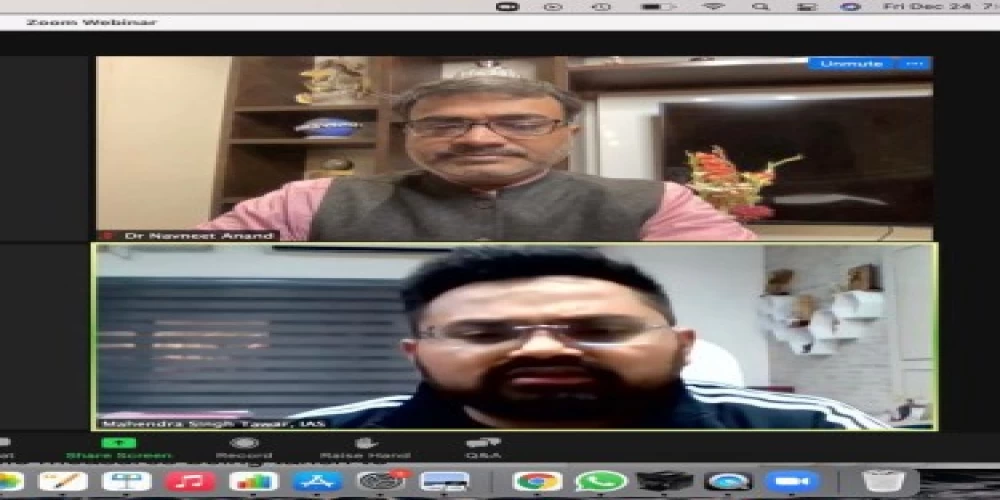
New Delhi: Even as civic agencies across the globe rue plastics, UP’s Ghaziabad might just be turning the perception upside down. In a novel experiment, that is certain to mark a paradigm shift in plastic management, Ghaziabad Municipal Commissioner and young IAS officer Mahender Singh Tawar is toying with the idea of plastic tourism and the civic body is in talks with producers' companies to come and set up unique, first-of-its kind plastic streets in the city.
“We must start speaking about plastic possibilities, and show to the world how we can reuse and recycle with responsibility. I am working on a concept of plastic tourism, in fact,” said Tawar, whose initiative with plastic has earned him laurels, in an exclusive dialogue with Bureaucrats India Editor-In-Chief Dr Navneet Anand and Associate Editor Naina Jha.
“We want companies to come forward and set up Plastic Street in the city. The idea is to make the most of plastic waste while at the same time discouraging the use of plastic which is not recyclable. It is a part of our holistic approach which we have adopted in managing and rejuvenating urban affairs in the city with special emphasis on waste management to ensure the people have a better life,” said Tawar. In fact, Ghaziabad has also been recognized for the concept of Plastic Tourism in Swachh Sarvekshan 2021 and received the National Award in Innovation and Best Practices by Ministry of Housing & Urban Affairs, Government of India.
Ghaziabad is doing innovative work in waste management and working towards zero dump yard. “We have already processed 1 lakh tonne garbage of Indirapuram dump yard, and by March 2022, we shall process 5 lakh tonnes of legacy waste at Pratap Vihar dump yard,” add Tawar, who joined the Indian Administrative Service in 2015. The Municipal Corporation is also going for door-to-door garbage collection besides working with multiple partners including civil society on waste management.
“We have put in place a multifaceted mechanism to manage waste. The process of recycling garbage is being institutionalized so that we do not need waste dumping yards. Segregation of waste is being monitored so that managing waste is done in an efficient manner. We are very particular about plastic waste management,” said Tawar.
Tawar and his team have come up with a unique concept of Garbage Factory, one of the first in India. “The aim is to take a different approach to addressing this problem and look at this Factory as a place to process garbage, in an efficient and sustainable manner,” informs Tawar.
On plastic waste management, the Corporation is also working aggressively on the concept of Extended Producers’ Responsibility (EPR), which is designed on the ‘polluter pays principle’ of the United Nations. “We are designing a formula of plastic credits and we see this as a money spinner for the corporation - for the approximately 30,000 tonnes plastic waste, we can end up earning approximately Rs 10 cr - and that shall give a momentous turnaround to the concept of garbage and waste management,” said Tawar, a resident of Rohtak, who completed his B Tech in Textiles and served as an Assistant in the Ministry of Defence before clearing the Civil Services.
Talking about Corporation’s ‘Bottle Exchange Program' launched with an NGO Plastic Troopers, Tawar said at the Bureaucrats India Dialogue, “They gave 1722 kg plastic waste and in return they were given equal amount of purest vermi compost, which in turn were distributed back among those who had given their plastic waste to the NGO.” The NGO has so far collected about 10 tonnes of plastic waste. This has been possible also because of people’s cooperation. “People and other stakeholders are being encouraged to say no to plastic. They are being recognized for their efforts in curtailing the use of plastic in Ghaziabad,” added Tawar.
The Corporation, informed Tawar, is also taking some unique initiatives on water conservation and ponds revival. The Civic Body is working closely with Ramveer Tanwar, who is popularly called the Pond Man of India, and who was praised by Prime Minister Narendra Modi in his Mann Ki Baat Radio Show.
“We have 46 ponds in Ghaziabad and we have put in place a plan for their revival through partnerships. We have auctioned 15 of these and working closely with fisheries department to ensure upkeep and maintenance,” informed Tawar.
In response to a question that civic facilities and Ghaziabad have never been a good combination, but officers like Tawar have always raised people’s hope, he said that things have changed over the years. “In last few years, we have been able to bring in a lot of changes in the urban ecosystem, and it is so heartening to see this,” he said.
Young and dynamic, Tawar has set an ambitious target for himself and his team to make Ghaziabad India’s number one Smart City. “This goal will be achieved with people’s participation. Their participation is very important in the development of any city. Ghaziabad is densely populated and is faced with multifaceted challenges. I am delighted to say that people are keen to transform Ghaziabad,” added Tawar, who cherishes his journey from garment to government.
Talking about the challenge of pollution and involving all stakeholders including industries under the CSR initiative, Tawar said that they are engaging industrial organizations in managing various urban issues including waste, industrial effluents and water management. “We are getting their full support,” he said. /BI/


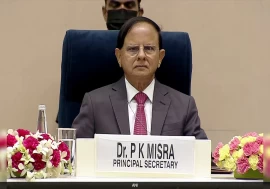
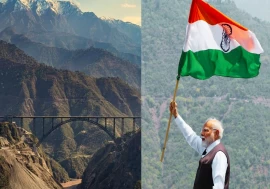


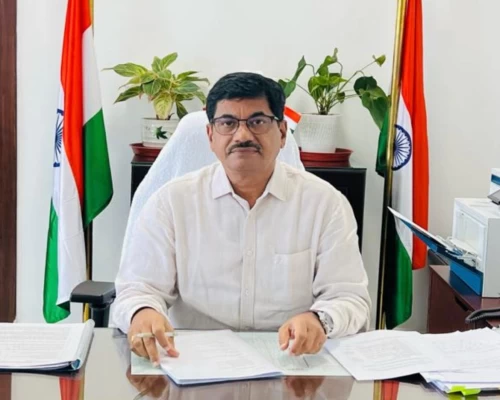
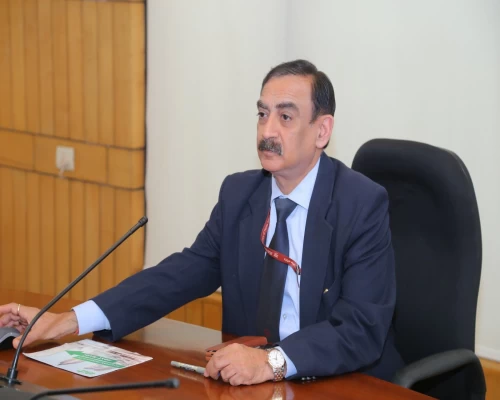
_500_x_400.webp)
